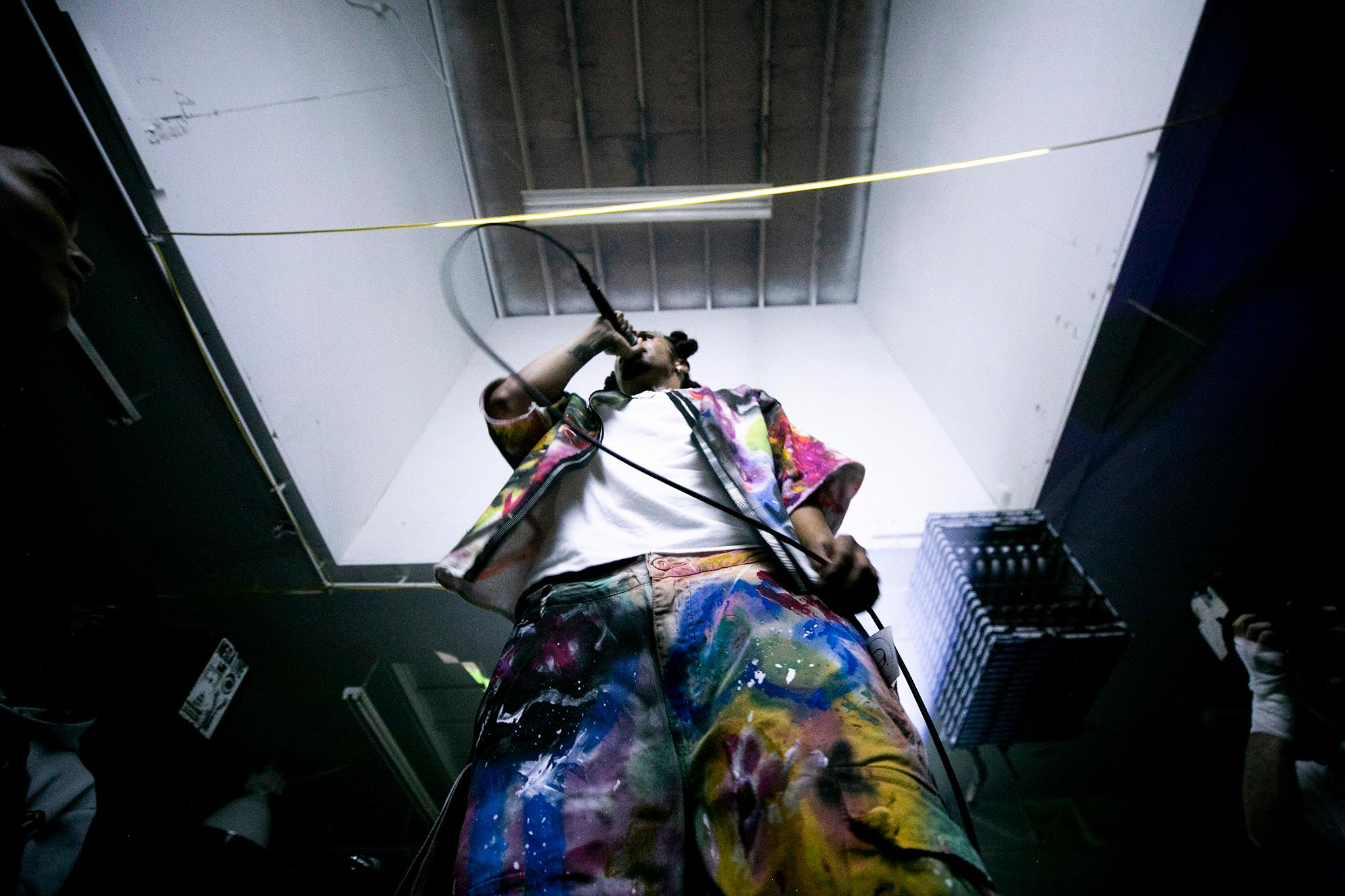It's been 50 years since DJ Kool Herc and his sister Cindy threw the first hip-hop back-to-school party in the Bronx on August 11, 1973.
The music genre swept the country off its feet. It flooded the radio waves and later broke music streaming records, teaching generations how to express who they were and where they came from. And for its Black pioneers, hip-hop music was intended to bring the community closer together and rebel against a country that wasn't quite ready but needed to hear the joy and grievances of Black America.
While plenty of Denver artists have plied their trade over the decades, the city seems to fall short of national recognition as a place that's made a mark on hip-hop.
So what is Denver's place in the genre? If you ask the people who have been trying to put the city on the map, they'll tell you the support system just hasn't quite been there. And for the artists of today, what needs to happen?
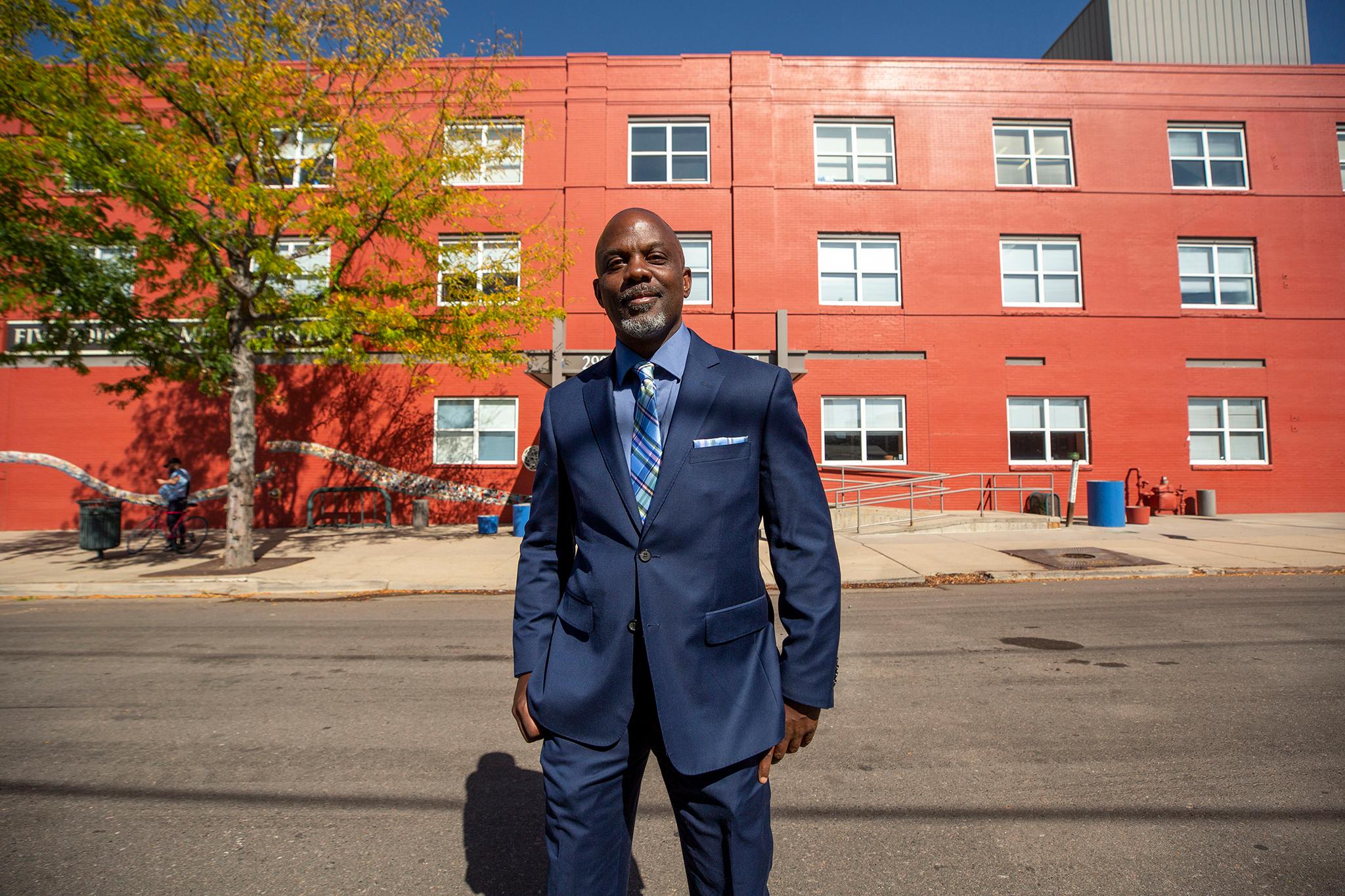
Jeff Campbell, who spent over two decades helping pioneer hip-hop in Denver as an artist out of Globeville in the '90s, still remembers the days when hip-hop was not the popular culture and had even less space in the city.
"For a long time it was a flyover state," said Campbell, founder and executive director of Emancipation Theatre Co. "Hip-hop in Denver or Colorado has been largely overlooked although we've been very present as far as a grassroots scene."
Campbell said the city has a bit of an identity crisis in this respect.
"They had an opportunity to support one another, but community radio and corporate commercial radio pretty much ignored the scene," Campbell said. "To think that you would have to beg to get on community radio and the DJs were too busy trying to be a part of what was going on in LA or larger cities."
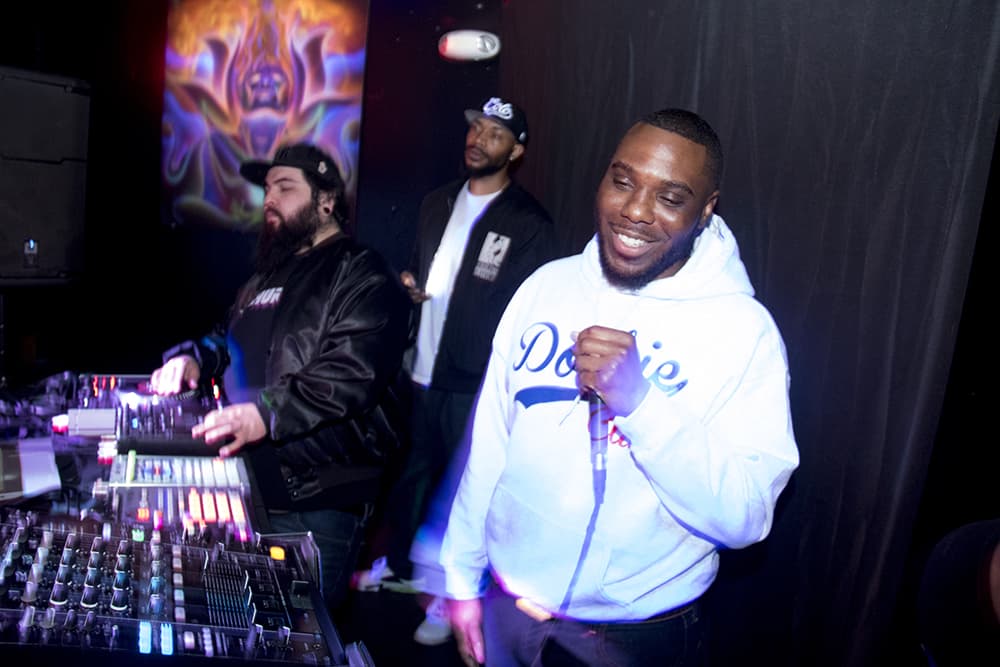
Still, Campbell said hip-hop has flourished in Denver over the years thanks to a few artists.
Deuce Mob, a Chicano rap/hip hop group, is known as Colorado's first rap group to sign a major label deal back in 1993 with Thump and Universal Records. Montbello's Big Jon Platt became one of the biggest contributors of hip-hop working closely with Jay-Z and helping launch the careers of superstars such as Kanye West, Drake and Snoop Dogg. He now serves as the chairman and CEO of Sony Music Publishing.
Local talent found a home at 15th Street Tavern and hip-hop collective Den One spinning underground acts. And consumers could get records at places like Twist & Shout, Wax Trax, Angelo's, Second Spin and Sunshine Records in East Colfax.
During his time as a touring artist in the city, Campbell felt like Denver had an opportunity to solidify itself as the Los Angeles of the Rocky Mountain region by having a bigger impact on places like New Mexico, Nebraska and Oklahoma.
"We could have really stood out in this region a whole lot stronger had we just recognized how much strength, love and talent we actually have right here."
According to Campbell, it was interest from college crowds and work from promoters like Francois Baptiste that helped bring in larger acts like Ice Cube, The Fugees and Outkast to Denver.

So 50 years in, where are we now?
"As far as where rappers are from, I'd say the main three cities are Denver, Aurora and [Colorado] Springs," said Brenton Saylor, founder of Colorado hip-hop blog Mile High Minute (MHM).
"I've always been into hip-hop and rap my whole life, but I'd never heard of another Colorado rapper at that time," Saylor said. "It made me question what was going on with the Colorado hip-hop scene."
He started MHM in March of 2018 after seeing a Yxng Phiji show in Boulder. At the time, Saylor resold sneakers and vintage clothes, often running into local rappers shopping for themselves. MHM began as a side project, but it's now become a full-time endeavor that makes money by promoting artists across the state.
"I'm not a good rapper but how can I get involved? Let me start interviewing artists," Saylor said. "The hip-hop scene has grown a lot since I first started."
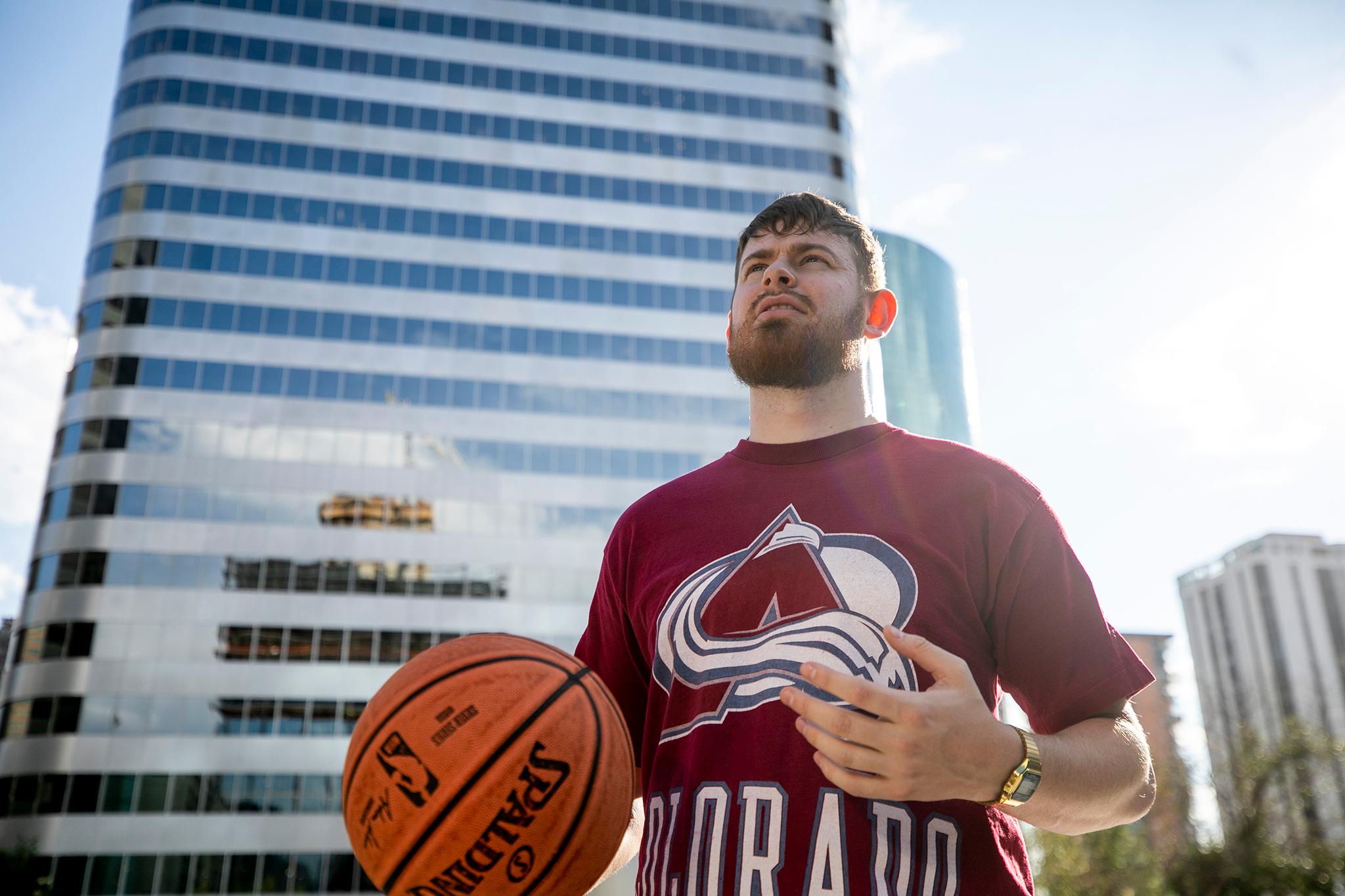
Saylor has noticed artists reach a million YouTube views more often than when he first began: Old Man Saxon, FBP Moe, Lil Travieso, to name a few.
"A lot of people say we don't have a sound," Saylor said. "To me it's a mix of the west coast and the Midwest. California-style music, but you also get the upbeat Detroit and Chicago type music."
"Denver had a real vibrant scene of underground Latin gangster style that was prevalent, very influenced by the West Coast," Campbell said. "That's a big signature of Denver's style."
So what does Denver's scene need to get attention?
At the Record Breakers USA Music & Television Conference held earlier this month, representatives of Roc Nation Music Label and Atlantic Records dished out their thoughts on Denver's hip-hop scene on a discussion panel at the gathering.
"Humans don't like new music as much as they think they do," said Reza Sarrafieh, Roc Nation's National Director of Radio and Promotions. "Where do your fans live? That's where you put your music. You should always know your own fanbase. Find your main audience and super serve them first."
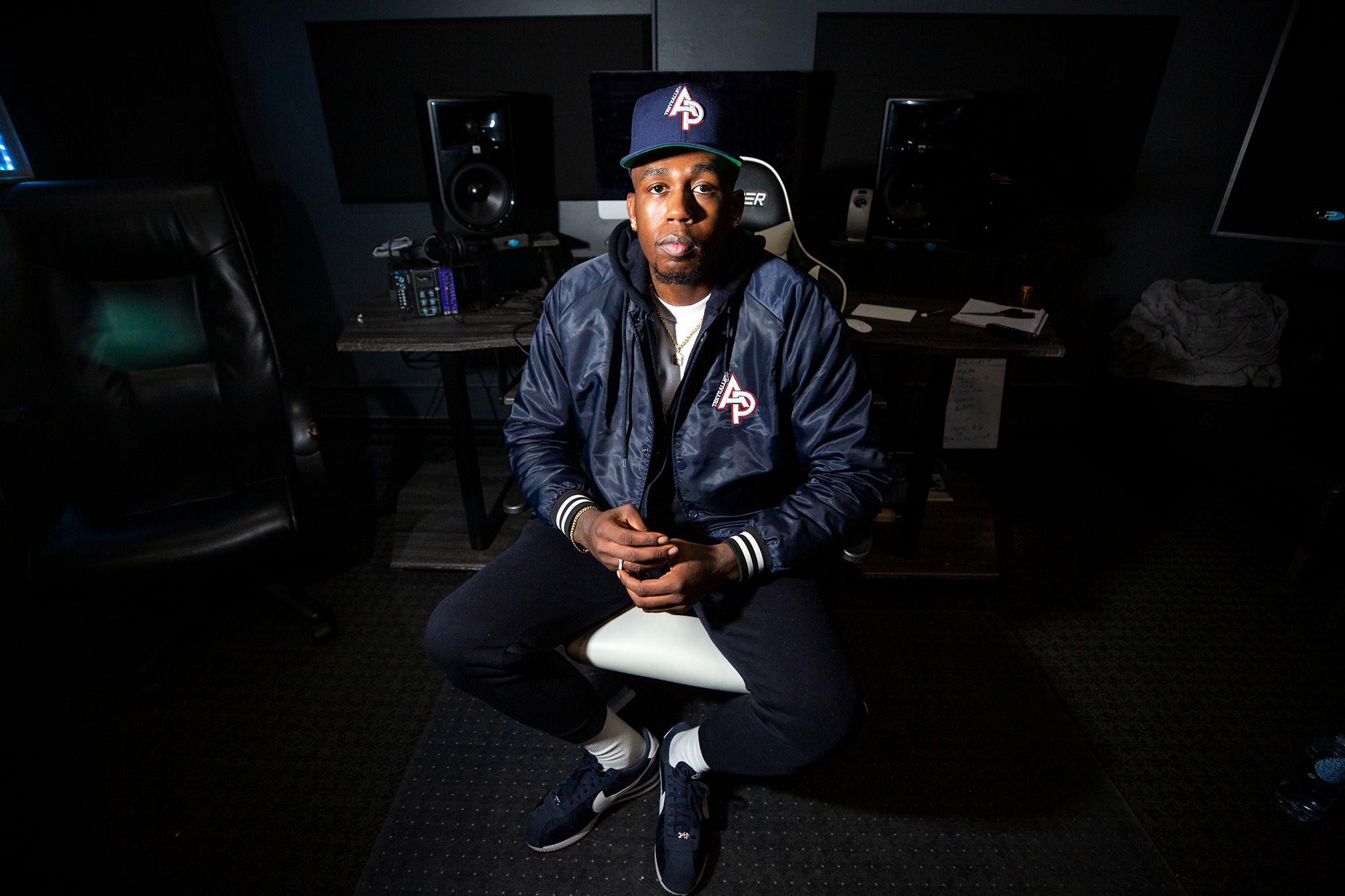
Yaasiel "Success" Davis, Atlantic Records Vice President of A&R, said Denver is "a small town. You gotta bring the people to your city. You gotta let me see Denver through your eyes."
Both record label representatives admitted that they didn't know who the artists coming out of Denver were other than Trev Rich and TheyCallHimAP.
Artists must consider investing in themselves just as much as they invest in their music, the label reps said.
"How much do you think it would cost you to pay 10 girls to ask [a DJ] to play your record?" Sarrafieh said. "This is a relationship business. You have to invest in it. We as labels do that. We used to hire people as street teams. It's very simple, it's human nature. He wants to know what they care about," he said pointing at DJ Squizzy Taylor who was also on the panel.
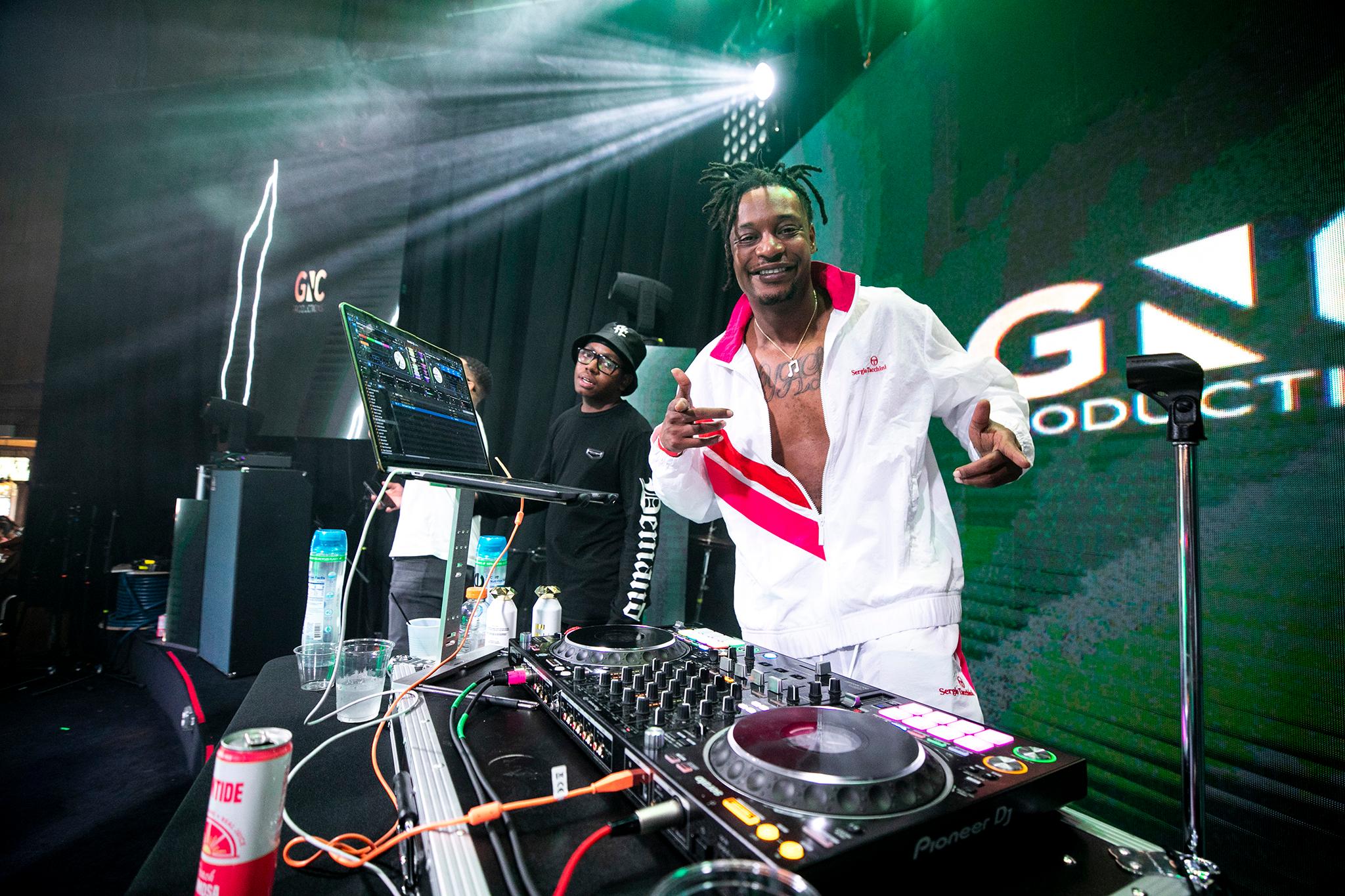
Taylor has long been a hip-hop figure in the community. As a host of KS 107.5 and now part of the ownership behind hip-hop nightclub TheLobby, he offered some of his own thoughts about what he looks for in an artist.
"I look for someone besides the artist to tell me about a record," Taylor said. "You not gon' get nothin from playing your song in the club one time. A following is how you build a record."
What labels once provided for in access to people has now become obsolete thanks to social media.
"The only thing you need a major label for is the bank," Sarrafieh said.
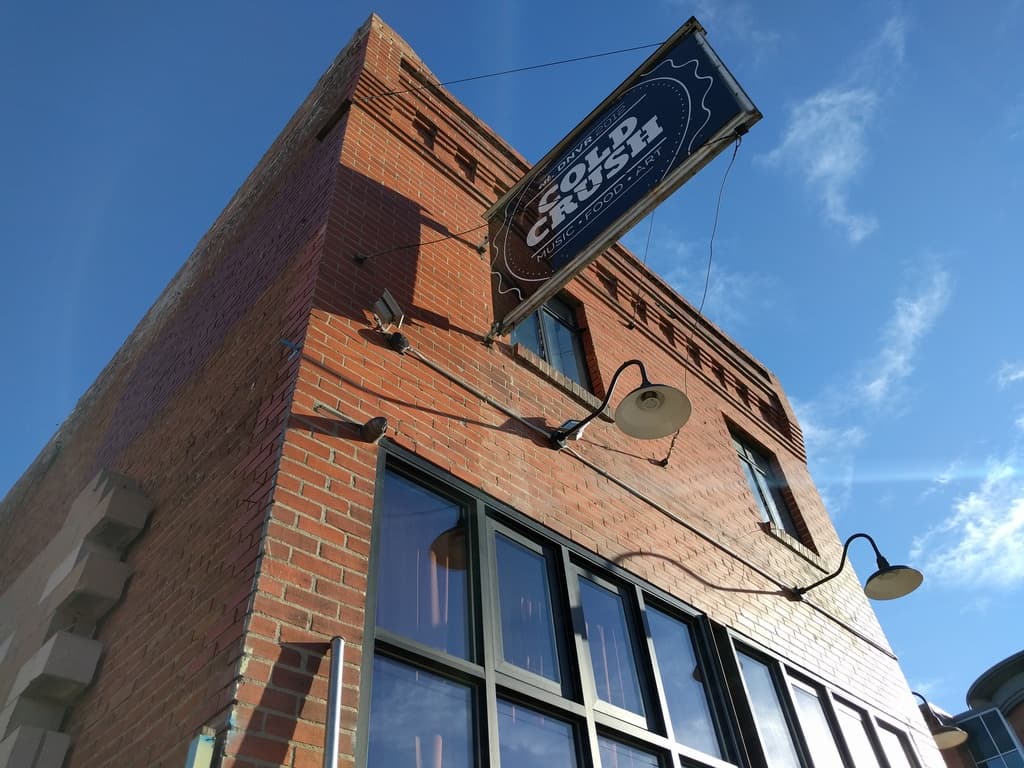
Denver, however, doesn't have the best reputation for letting hip-hop commune in public spaces.
"There's been this idea that Denver clubs don't really support hip-hop out here," Saylor said. "It seems like anytime there's a dope hip-hop club out here it gets closed down after a year or two max."
Hip-hop bar Cold Crush was closed in 2016, after Tyrone "Goodie" Adair was shot and killed outside. After the city shut it down two days later, hundreds gathered in support of the bar. Denverite looked at the numbers and found that Cold Crush did not have an unusual number of violent crimes compared to other bars in the city.
Denver Arts and Venues ended a lease with Onyx Ultra Lounge hip-hop and dance club two years early in 2019. Four gun-related crimes took place at the Denver Performing Arts Complex parking garage nearby within a month. Denver Police had responded to 235 calls and the business was fined for one count of selling alcohol to a minor and one security guard bouncing without a license.
Former City Councilwoman Candi CdeBaca suggested the club was unfairly targeted for crimes that should not have been connected with the club. General manager Tommie Ellis also felt it was unfair to be held for crimes that occur in the parking garage but didn't defy city orders to move out.
Beta Nightclub permanently shut down in 2022 after Denver officials found that the club had been hiring unlicensed security guards, allowing for people to drink after hours and undercover or off-duty officers reported nightly fights and patrons wearing gang insignia. The venue originally opened in 2008 as an EDM club. It was taken over by Hussam Kayali, also known as Valentes Corleons, in late 2019 and rebranded it as a hip-hop club.
Most recently Roo-Bar Lounge, owned by Jugurta Tighraine, was closed earlier this year. Accusations of disorderly conduct, violence and improper security caught the attention of city officials and after DPD carried out an undercover sting in February they found that the bar wasn't using wands on patrons, let people re-enter after leaving and did not have a necessary number of licensed security guards, Westword reported.
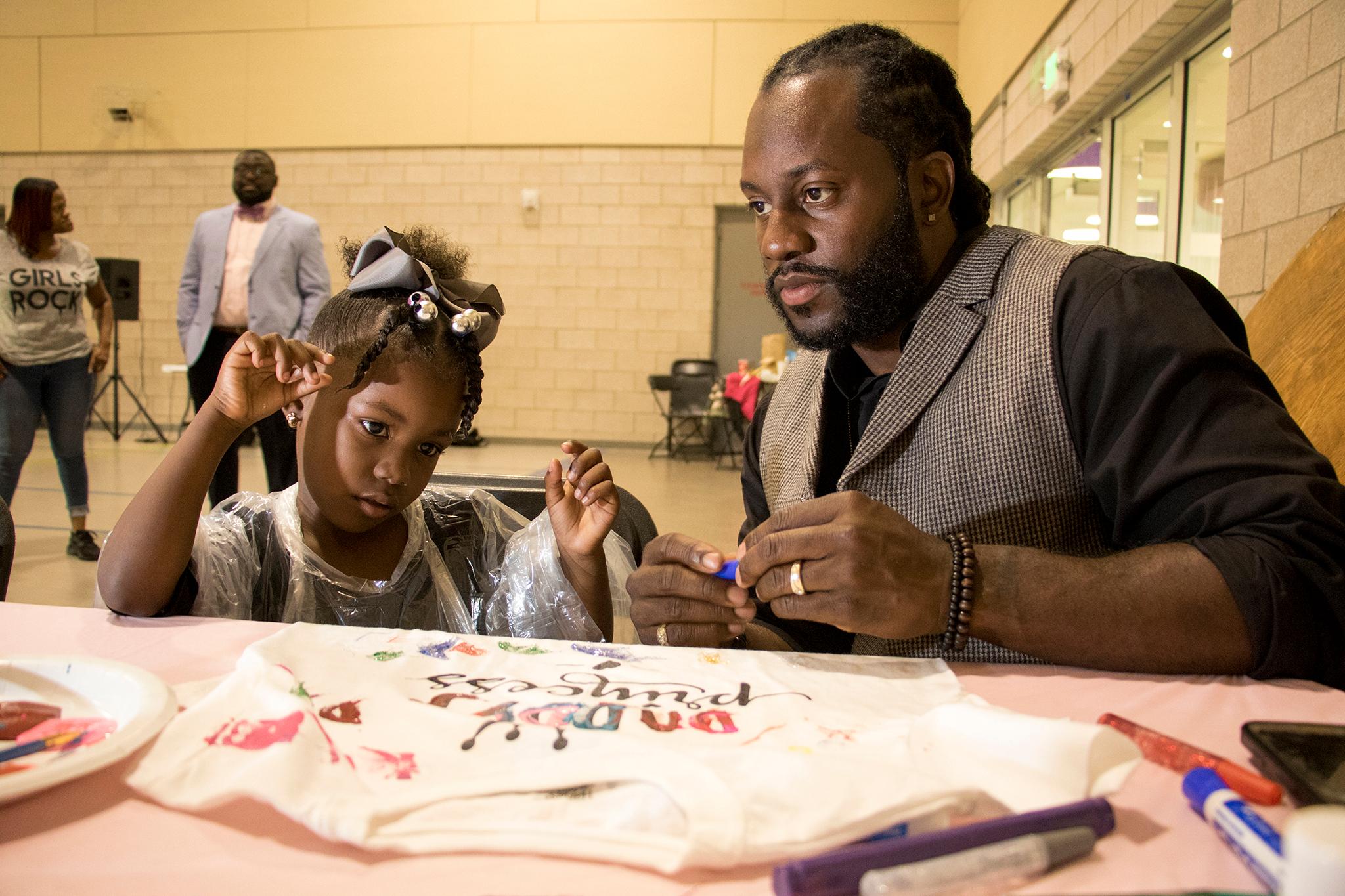
Kamau Martinez, also known as DJ Ktone, is an entertainer, entrepreneur, philanthropist and founder of the Ktone Cares Foundation in Denver. He shared his thoughts about what needs to happen moving forward in the scene.
"They love hip-hop as far as our money and culture, but when they're done with us they're done with us," Martinez said. "On our end, we don't do our due diligence because we don't own anything. We need to start looking at ownership. Ownership of clubs, lounges, restaurants, properties."
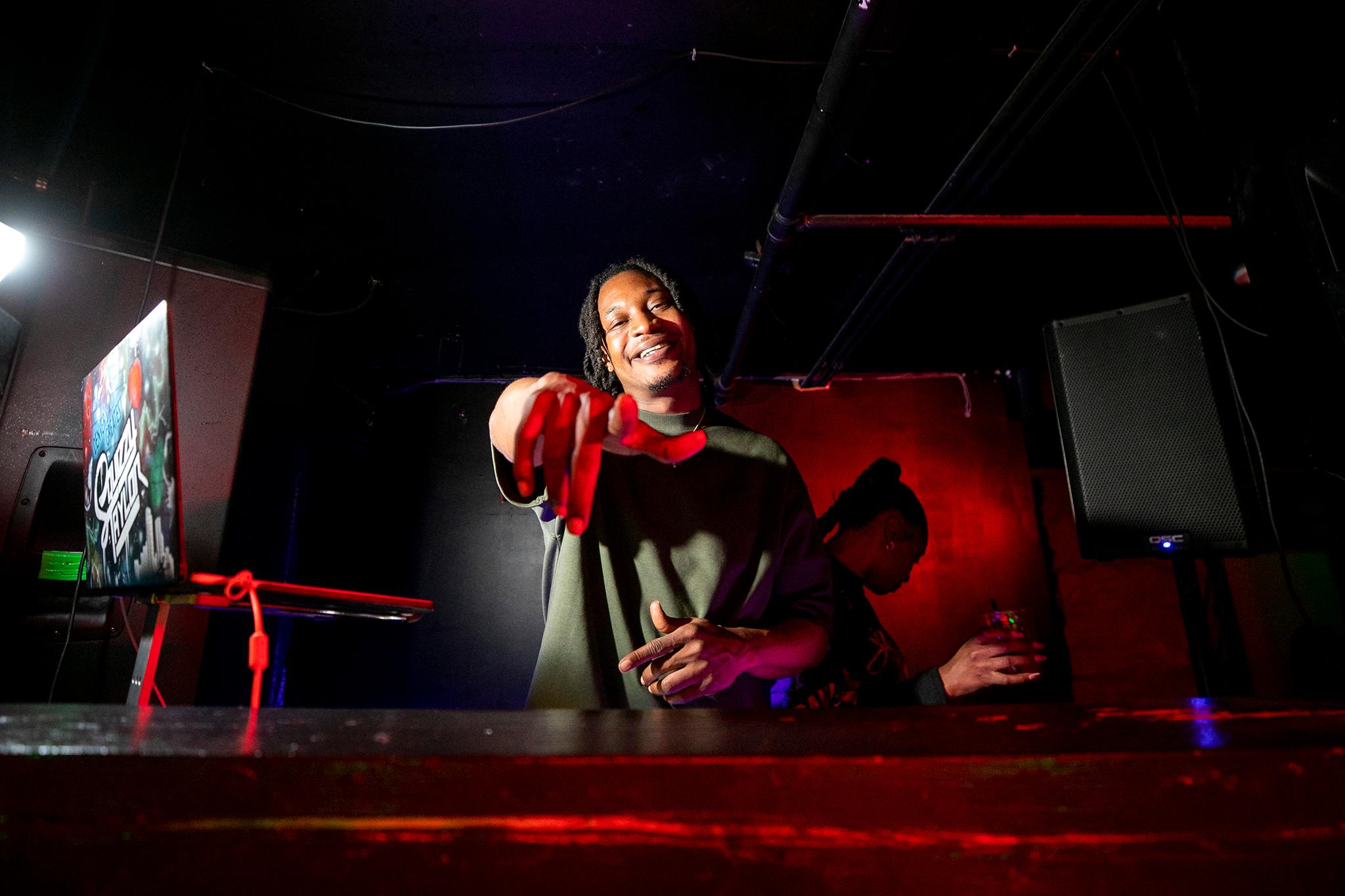
Taylor, who has ventured into ownership himself, understands the responsibility of hosting parties in the name of hip-hop.
"The more skin you have in the game the more leverage you have in the decision making so these problems don't exist," Taylor said. "If you're just going in a spot that's run by people outside of the culture, you could be used for a moment to generate money but when they're done with you they'll go in a different direction."
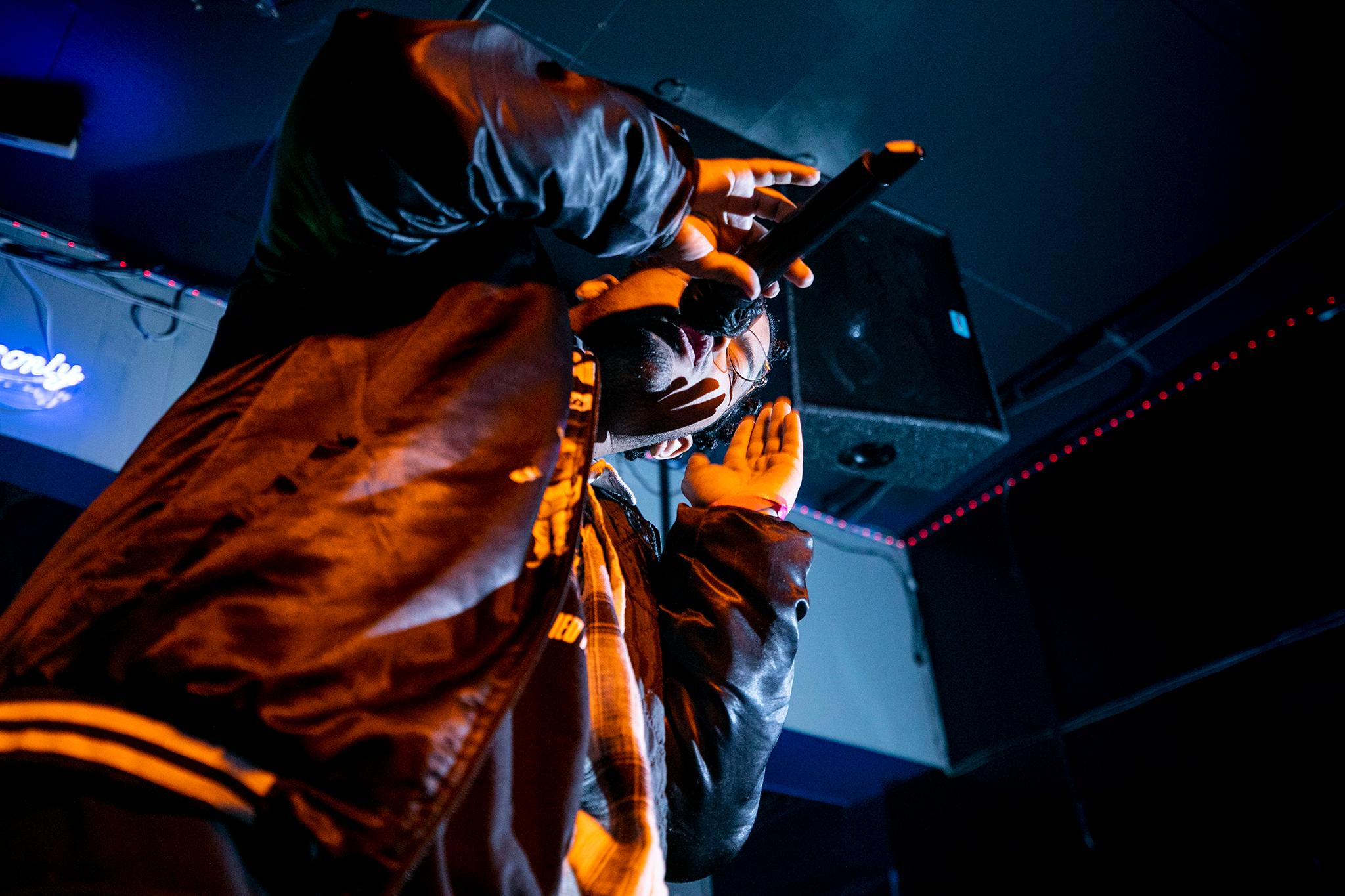
In recent years, hip-hop open mic nights like Test Kitchen, Wolf Wednesdays and The Knock have fostered spaces for artistic collaboration and gathering.
"When Montbello cats like M.N.L.D., Colfax Cac and Interstate Ike had their release party at Cervantes; it was sold out, wall to wall, nothing but Black folks!" Campbell said. "The support was there."
Then there's the question of what role can white people, who make up most of Denver, play in supporting a Black-created music genre?
Predominantly white cities like Boston and Seattle have managed to attract national attention (even if that meant creating one of the Grammys most controversial wins: Macklemore winning Best Rap Album over Kendrick Lamar in 2014).
Born and raised in the city, Saylor considers himself a "guest in the house of hip-hop" and believes it's possible for Denver to make a meaningful mark in the genre.
"A lot of white people like hip-hop music," Saylor said. "I feel like there's no reason why it can't happen here."
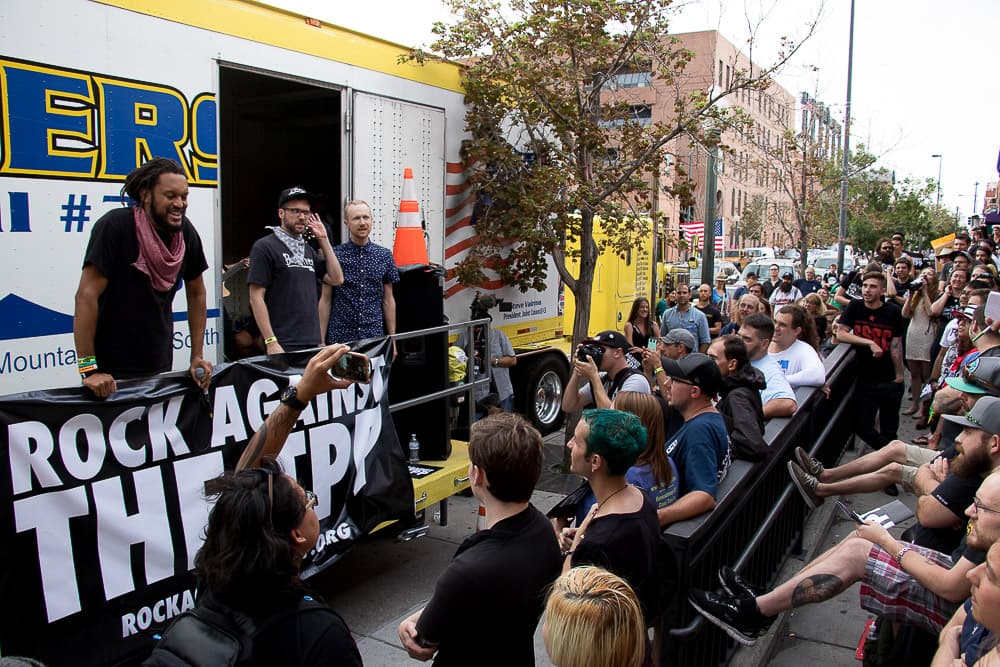
One of the most successful hip hop acts out of Denver is The Flobots, an experimental rap rock band that reached mainstream success in the early 2000s with its hit song "Handlebars." Jamie Laurie, also known as Jonny 5, who is white, is one of the lead vocalists. Campbell said the band's success brought attention to the local scene.
"It took Jonny 5 and Mackenzie [Gault] on the viola to break through and bring more national attention to the scene," said Campbell. "Jonny was in the cyphers, at the club, the open mics doing his thing. He wasn't separate from hip-hop, he was still very much a part of the scene back then, but because of their appeal and configuration, that was helpful for them whereas just another Black dude rapping wasn't catching the same attention."
Denver might have missed its national breakthrough in the first 50 years. But who's to say it can't in the next half-century?
"I remember when people thought it was gonna fade out," Martinez said. "It makes me proud to know we reached 50. I just know I'm in the right business and part of a history that's never going anywhere."
For the pioneers of hip-hop, and the generation carrying today's scene, the hope is that in the next 50 years Denver will make its mark.
"I see something else being cultivated in the inner cities where low income, youth of color are disenfranchised and they find their voice through cultural creative self expression no different than blues or jazz or rhythm and blues or hip-hop," Campbell said. "I think there is something on the horizon that we're going to hear that we've never heard before. The mainstream will deem it as a fad. Young people will teach us exactly what it is and 50 years from now there's gonna be some other dude having this conversation with somebody just like you."
"Hip-hop is all I know," Taylor said. "Knowing the history is super important because a lot of the people that made this cool never got to reap the benefits of it. Damn near everything in the world stems from hip-hop. I just want to see 50 more."
Watch the following documentary for a deep history of hip-hop in Denver.

